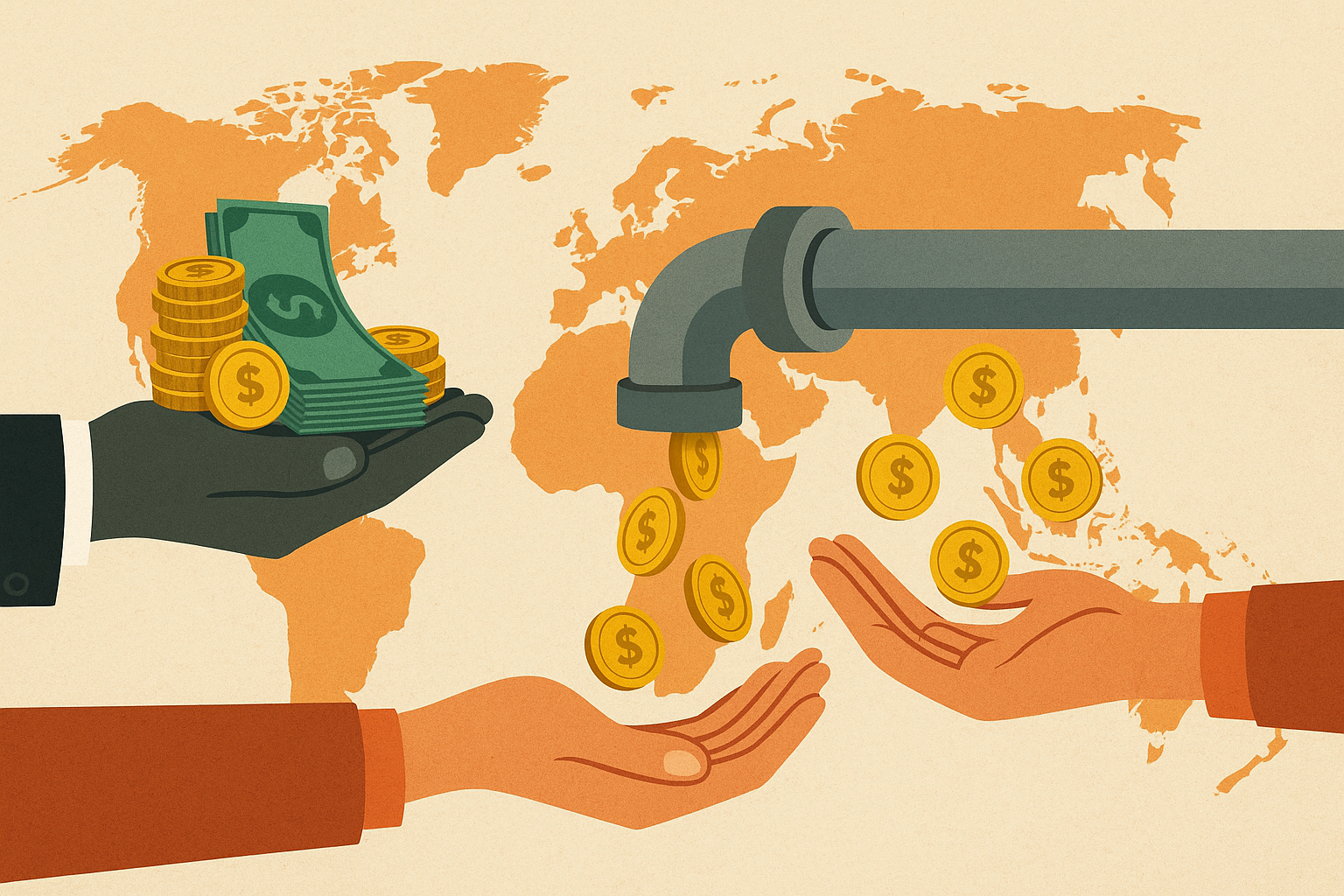Introduction
Global Wealth Redistribution: Pipe Dream or Possible Future? In a world marked by immense economic disparities, the conversation around global wealth redistribution has shifted from idealistic musing to urgent necessity. While the top 1% controls nearly half of the world’s wealth, billions live in poverty, lacking access to basic necessities like clean water, food, and education. Can wealth redistribution at a global scale offer a solution? Or is it merely a utopian dream?
This blog explores the foundations of wealth inequality, the arguments for and against redistribution, and whether the world is ready—or even capable—of such a radical economic transformation.
Table of Contents
The State of Global Wealth
Wealth inequality is not new, but it has reached unprecedented levels. According to the Credit Suisse Global Wealth Report, the richest 1% now owns 44% of the world’s wealth, while the bottom half shares just 1%. The World Inequality Lab confirms this troubling trend, linking global instability and societal discontent to the widening wealth gap.
Why does this matter?
Because unequal access to resources leads to unequal opportunities. Countries in the Global South, already burdened by colonial legacies and modern exploitation, face massive economic headwinds. This inequality isn’t just a moral dilemma—it poses political, social, and environmental risks for the planet as a whole.
🔗 World Inequality Report 2022
What Does Wealth Redistribution Mean?
Wealth redistribution refers to the reallocation of wealth and income from the rich to the poor. This can be executed through various mechanisms:
- Progressive taxation
- Universal basic income (UBI)
- Debt cancellation for developing nations
- Foreign aid and humanitarian development
- Climate finance and reparations
At a national level, many countries (especially Nordic nations) have applied these principles successfully. Globally, however, implementation is fraught with political resistance and logistical barriers.
Why Is It So Hard to Implement Globally?
There are several reasons why global wealth redistribution is difficult to achieve:
1. Sovereignty and National Interests
Nations prioritize their own citizens. Even in crises, foreign aid often comes with conditions, tied to political or economic agendas. This inward focus makes coordinated redistribution difficult.
2. Lack of Global Governance
While organizations like the United Nations, IMF, and World Bank exist, none have the enforceable authority to mandate wealth redistribution. Global decision-making is largely voluntary and influenced by powerful lobbying interests.
3. Tax Havens and Capital Flight
Wealthy individuals and corporations often hide assets in tax havens, evading regulation and taxation. The Tax Justice Network estimates that over $21 trillion is hidden offshore, untaxed and untracked.
Case for Global Wealth Redistribution
Despite the barriers, there are compelling arguments in favor of global wealth redistribution:
🌱 1. Ethical Responsibility
If wealth is often accumulated through exploitation (colonialism, labor abuses, environmental degradation), then redistribution becomes not charity but justice.
🌐 2. Global Stability
Reducing poverty and inequality helps curb extremism, mass migration, and pandemics—issues that don’t respect national borders.
📈 3. Economic Growth
According to the International Monetary Fund (IMF), reducing inequality can lead to stronger and more sustainable growth. Empowered populations spend more, innovate more, and contribute more.
Tools and Models for Redistribution
There’s no one-size-fits-all solution, but several ideas have been proposed and tested:
💸 Progressive Global Tax
A globally enforced tax on wealth or financial transactions could be used to fund climate action, public health, and education initiatives.
💰 Universal Basic Income (UBI)
In a globally connected world, a small global digital tax could fund a universal minimum income, especially in developing nations.
🌍 Climate Reparations
Wealthier nations could compensate lower-income countries that bear the brunt of climate disasters, despite contributing the least to emissions.
The Critics’ View
Skeptics argue that global wealth redistribution is a pipe dream, citing:
- Economic inefficiency: Wealth redistribution might disincentivize innovation and productivity.
- Corruption concerns: Mismanagement in receiving countries could nullify any positive impact.
- Political backlash: Wealthier countries may face resistance from their own citizens, who feel unfairly targeted.
Some argue that redistribution should happen at the national level first, through fair wages, universal services, and taxation reforms—before scaling globally.
Are There Any Success Stories?
Yes, though rare. The Global Fund to Fight AIDS, Tuberculosis and Malaria is a powerful example of international financial cooperation that has saved millions of lives.
Additionally, the Green Climate Fund—part of the UN climate mechanism—is a redistributive instrument that helps developing countries adapt to climate change, though it has faced funding challenges.
These examples prove that targeted redistribution can work, provided there is accountability, transparency, and sustained political will.
What Role Can Individuals and Corporations Play?
Global redistribution is not only the responsibility of governments. Multinational corporations, billionaires, and even regular individuals can contribute.
- Philanthropy: Programs like the Giving Pledge, where billionaires commit to giving away half their wealth, are steps in the right direction.
- Sustainable consumption: Choosing ethical brands, supporting fair trade, and reducing environmental footprints can help balance the scales.
- Advocacy: Citizens must demand better global policies from their leaders and support international efforts to regulate offshore wealth and corporate tax avoidance.
Conclusion: Utopia or Next Step?
Global wealth redistribution may seem utopian today, but so did universal healthcare, the abolition of slavery, and even the internet once. The challenges are enormous, but so are the stakes. If humanity is to solve its biggest problems—from climate change to pandemics—cooperative, equitable resource allocation is not just desirable. It’s essential.
The path to a fairer world may be long and complicated, but each step—from progressive tax reform to climate finance—can bring us closer to that vision. As the saying goes: “The best way to predict the future is to create it.”
Find more Finance content at:
https://allinsightlab.com/category/finance/

